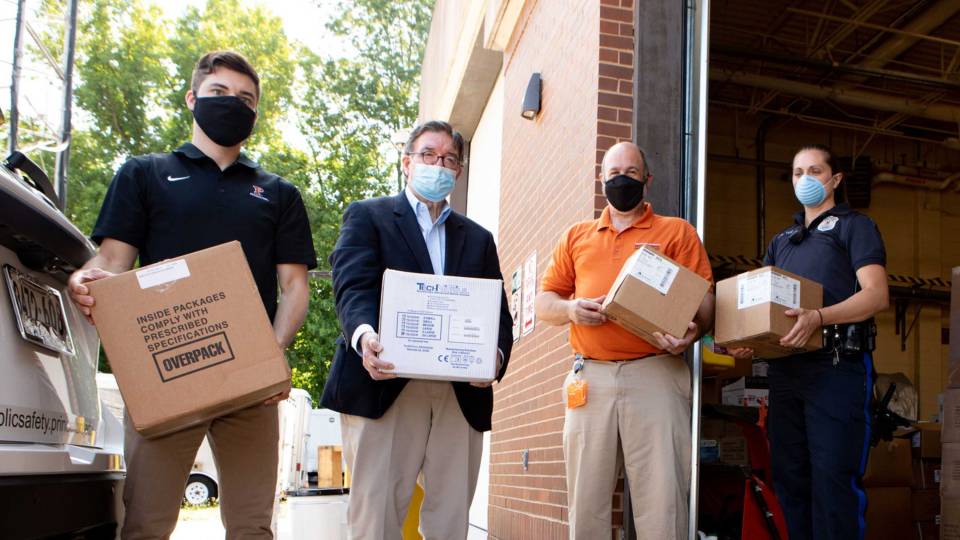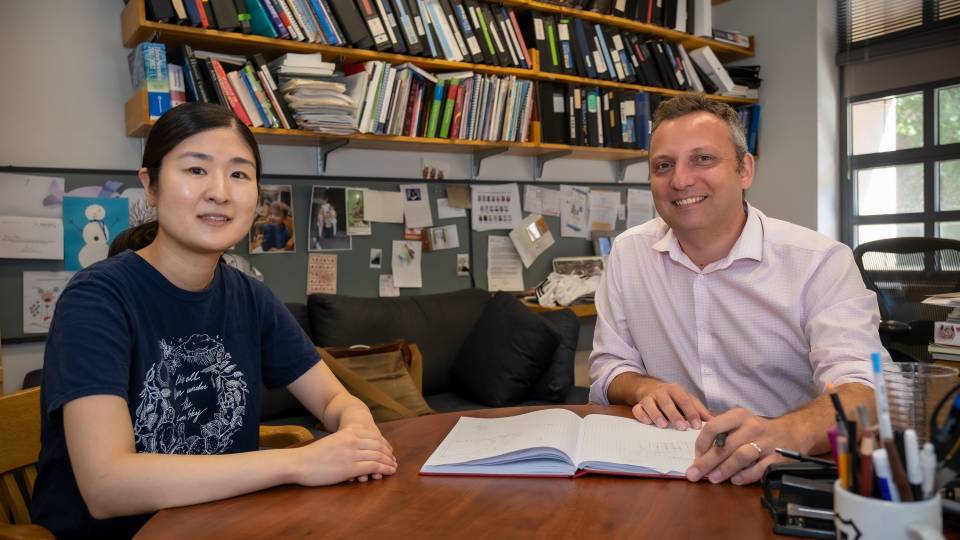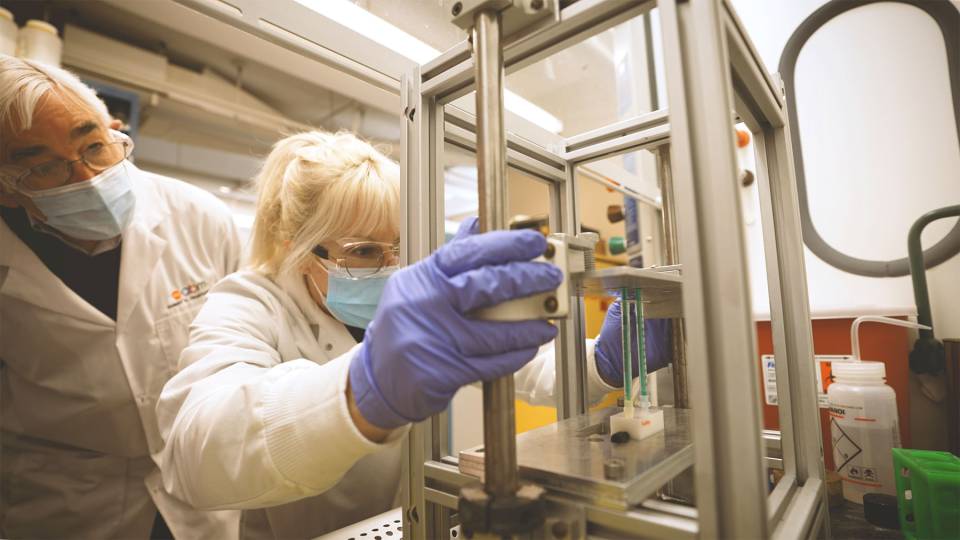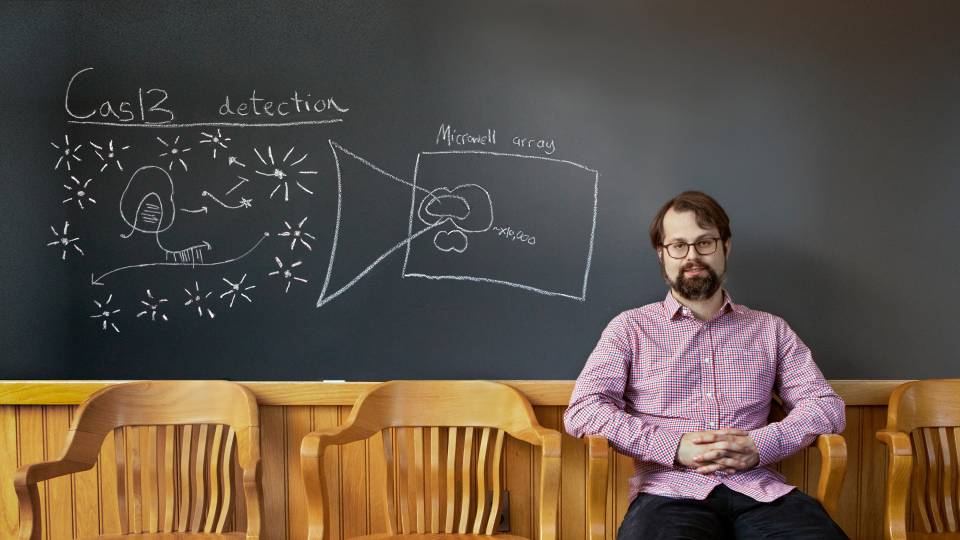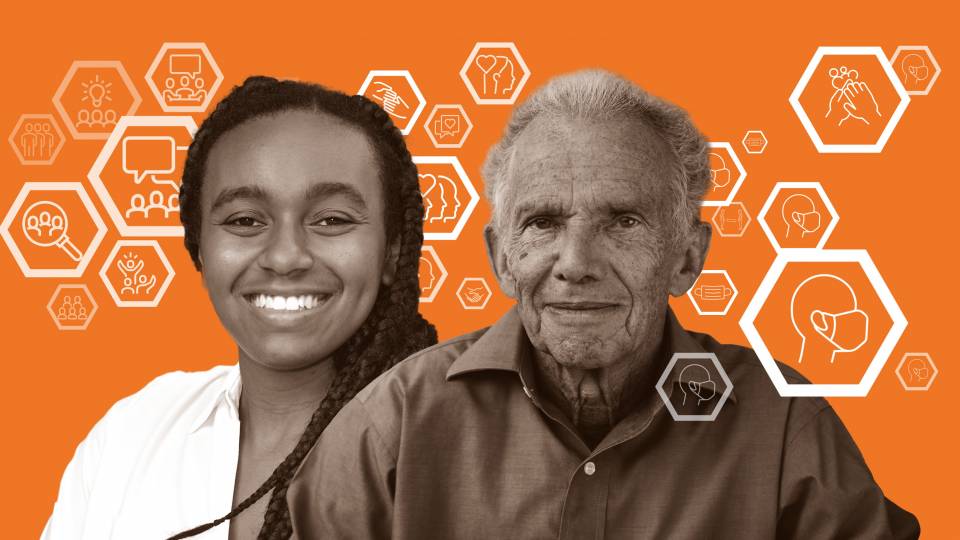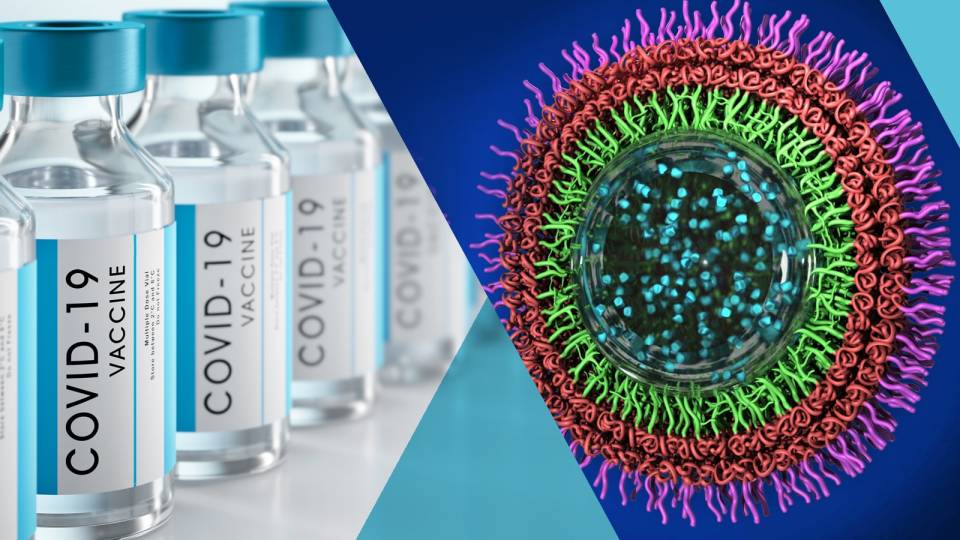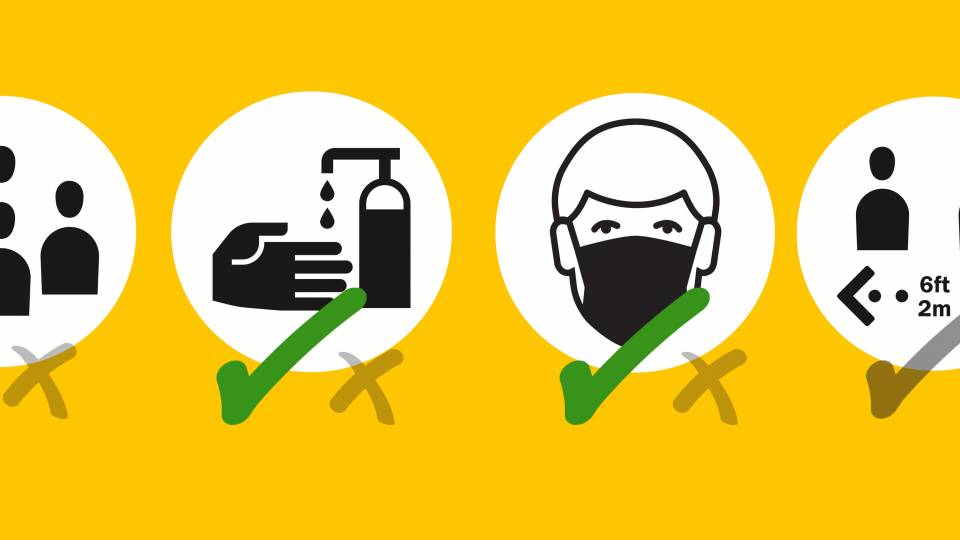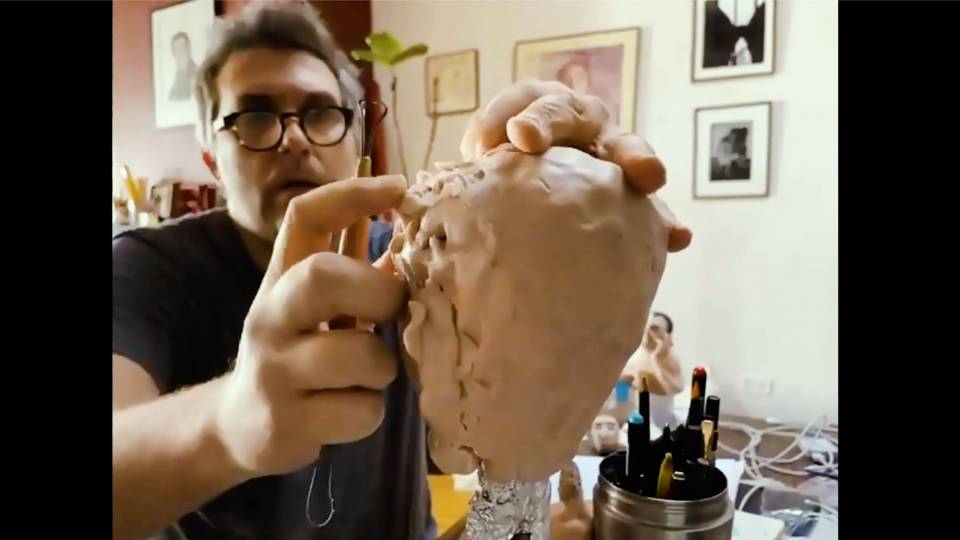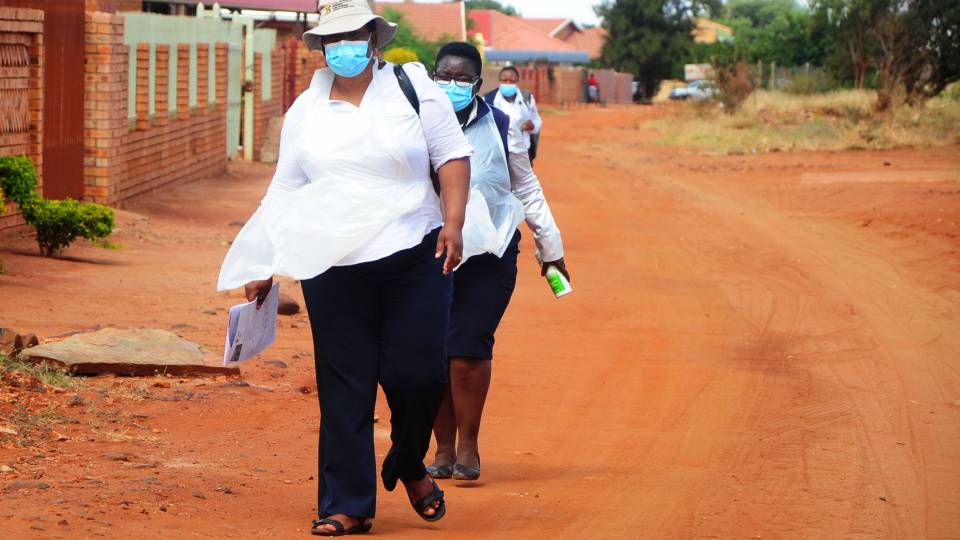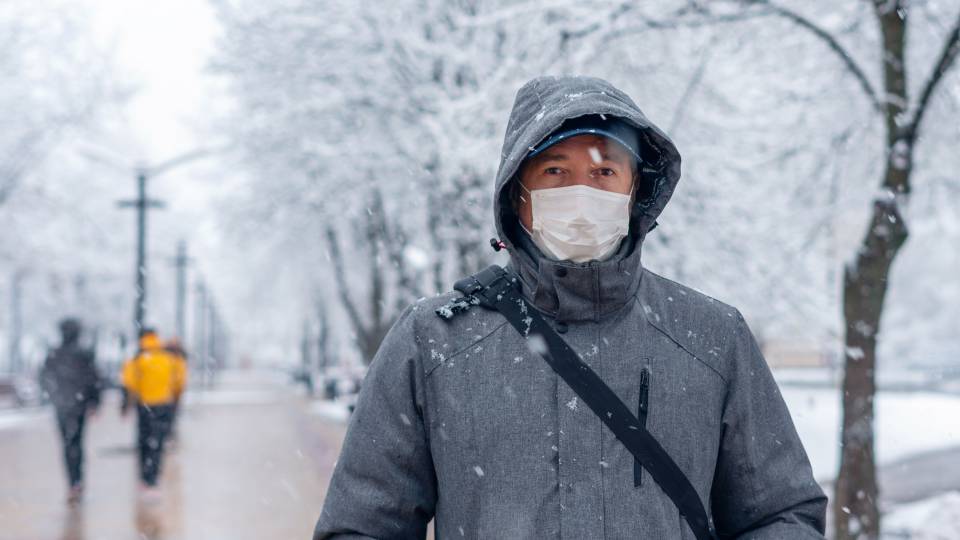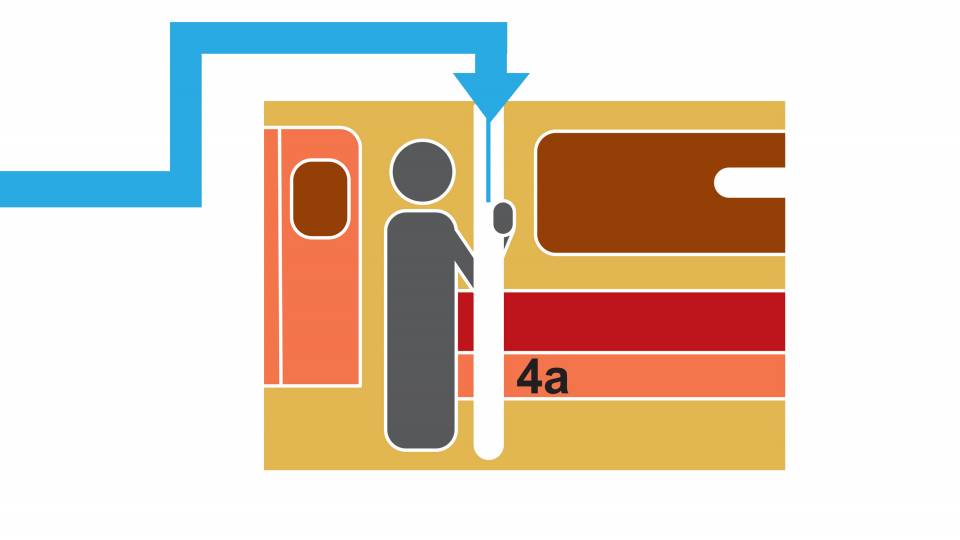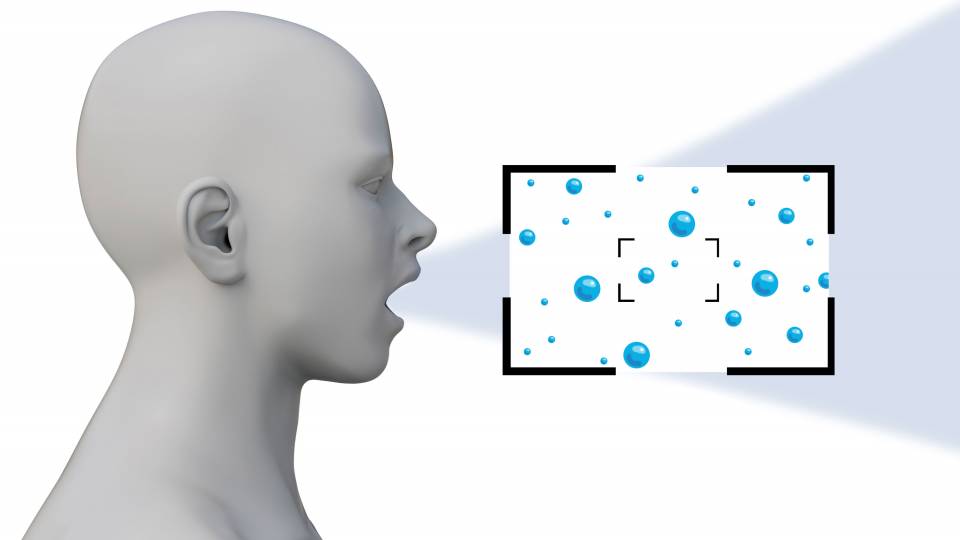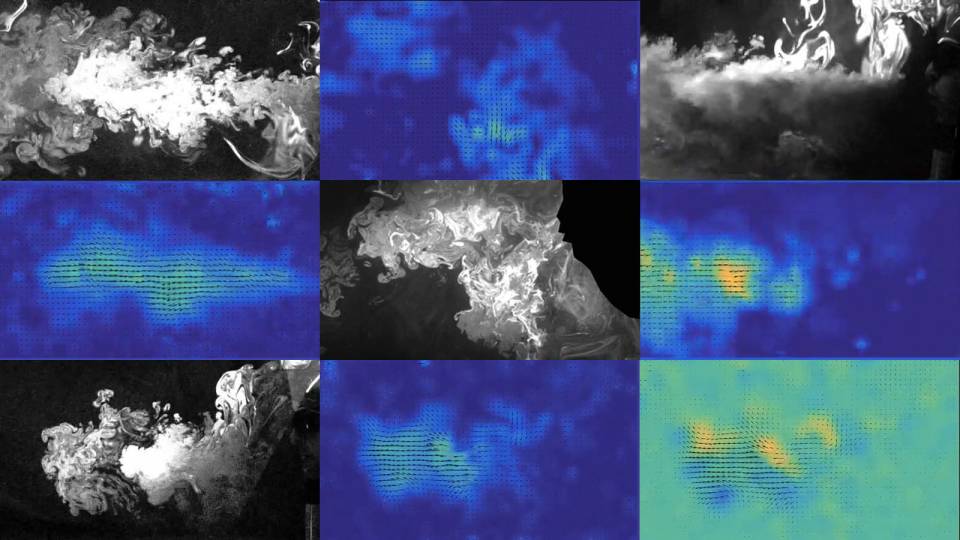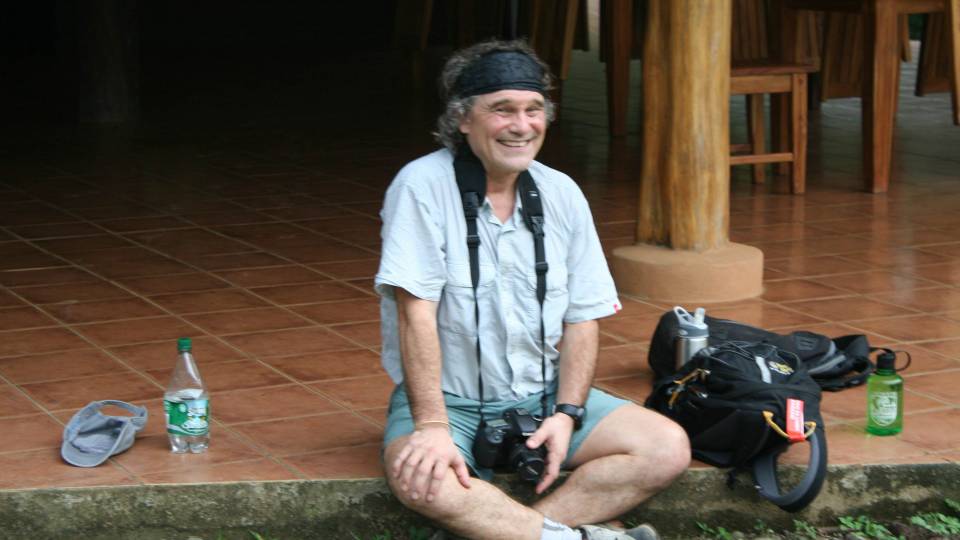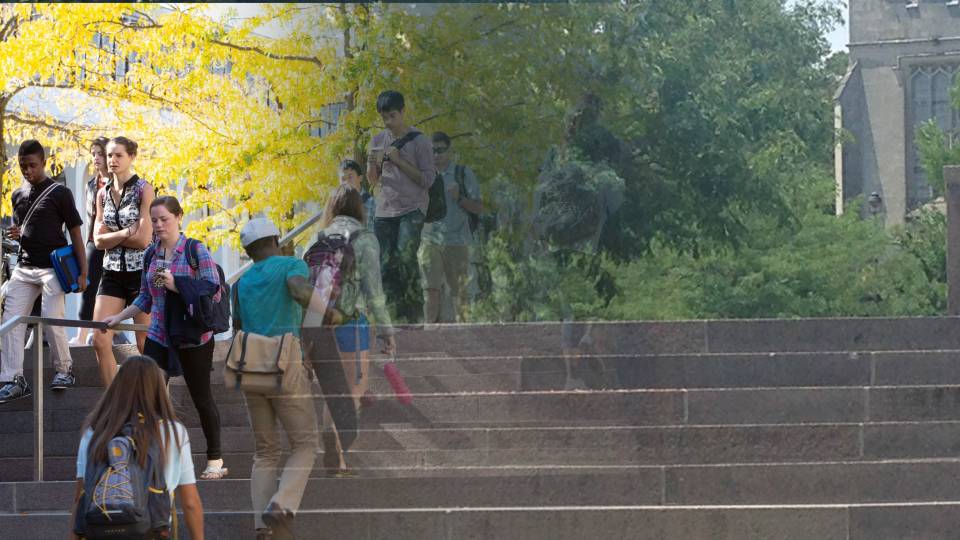The C3.ai Digital Transformation Institute has awarded $5.4 million to 26 projects to accelerate artificial intelligence research to mitigate COVID-19 and future pandemics. Princeton faculty members Matthew Desmond, Simon Levin, Stefana Parascho, H. Vincent Poor, Corina Tarnita and Mengdi Wang are among researchers to receive funding for their projects.
Princeton University is a member of the C3.ai Digital Transformation Institute, a $367M research consortium dedicated to accelerating the benefits of artificial intelligence for business, government and society, founded by C3.ai Chair and CEO Tom Siebel. C3.ai DTI, jointly managed by the University of Illinois at Urbana-Champaign (UIUC) and the University of California, Berkeley, and in partnership with Microsoft Corp., invited researchers in March to take on the challenge of abating COVID-19 and advancing AI-based science and technologies for mitigating future pandemics.
After a peer review process, C3.ai DTI selected 26 research proposals that address COVID-19 across the disciplines of medicine, urban planning, public policy and computer science, several of which focus on the study of COVID’s impact on racial, economic and health care disparities. A total of $5.4 million in cash will be awarded to selected research projects(Link is external). In addition, research teams will gain access to the C3 AI Suite and Microsoft Azure computing and storage, as well as data resources such as the C3.ai™COVID-19 Data Lake(Link is external) in support of their research.
Modeling and Control of COVID-19 Propagation for Assessing and Optimizing Intervention Policies

H. Vincent Poor
H. Vincent Poor(Link is external) and Simon Levin(Link is external) are members of the project team “Modeling and Control of COVID-19 Propagation for Assessing and Optimizing Intervention Policies,” which was one of the initial three projects selected to receive funding in the spring.
Poor, who is the principal investigator of the project team, is the Michael Henry Strater University Professor of Electrical Engineering(Link is external) and interim dean of the School of Engineering and Applied Science(Link is external). Levin is the James S. McDonnell Distinguished University Professor in Ecology and Evolutionary Biology(Link is external).

Simon Levin
Project description: A key scientific goal concerning COVID-19 is to develop mathematical models that help us to understand and predict its spreading behavior, as well as to provide guidelines on what can be done to limit its spread. As such, this project pursues: 1) analysis and prediction of the spread of COVID-19 through a new mathematical model incorporating virus mutations; and 2) optimal and robust control of the spread of COVID-19 by carefully timed interventions. Expected outcomes could give authorities another tool to better assess the effectiveness of existing or potential countermeasures in limiting the spread of COVID-19. They could also help leaders assess the outcomes of eliminating existing countermeasures. Finally, they could help better prepare for different mutation scenarios, including worst cases (for the current or a future pandemic).
Along with Poor and Levin, the research team includes Osman Yagan, associate research professor of electrical and computer engineering at Carnegie Mellon University; and Joshua Plotkin, the Walter H. and Leonore C. Annenberg Professor of the Natural Sciences at the University of Pennsylvania.
Bringing Social Distancing to Light: Crowd Management Using AI and Interactive Floor Projection
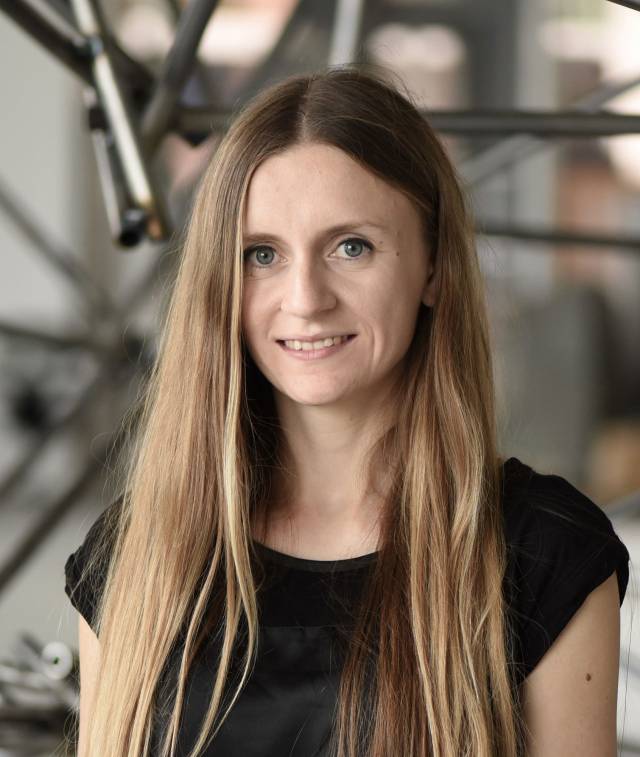
Stefana Parascho
Stefana Parascho(Link is external), assistant professor of architecture(Link is external), is principal investigator, with team member Corina Tarnita(Link is external), associate professor of ecology and evolutionary biology, on the project “Bringing Social Distancing to Light: Crowd Management Using AI and Interactive Floor Projection.”

Corina Tarnita
Project description: With the spread of COVID-19, social distancing has become an integral part of our everyday lives. Worldwide, efforts are focused on identifying ways to reopen public spaces, restart businesses and reintroduce physical togetherness. We believe that architecture plays a key role in the return to a healthy public life by providing a means for controlling distances between people. Making use of computational processing power and data accessibility, we propose a multipronged approach that will promote healthy and efficient movement through public space. The goal of our research is to develop: 1) a computational tool that utilizes machine learning to predict people’s movement and provides suggestions for adapting existing spaces through local physical interventions; and 2) a physical intervention system based on light projections that provides direct realtime information about safe trajectories and movement behavior for pedestrians. The computational tool will use existing visual data from target case study spaces, identifying movement patterns and translating those into behavior rules. This data will be combined with swarm behavior knowledge from natural systems to provide an initial movement prediction. At the same time, the installation of the camera-projection system will allow us to evaluate the efficiency of the proposed measures, monitor flow, and inform the predictive model. Ultimately, we expect to identify strategies for efficient trajectory planning and repurposing of public space, while continually learning from their direct implementation. As such, we hope to identify novel spatial typologies pertaining to improved public health, resulting in planning rules that will reshape the built environment.
Housing Precarity, Eviction and Inequality in the Wake of COVID-19
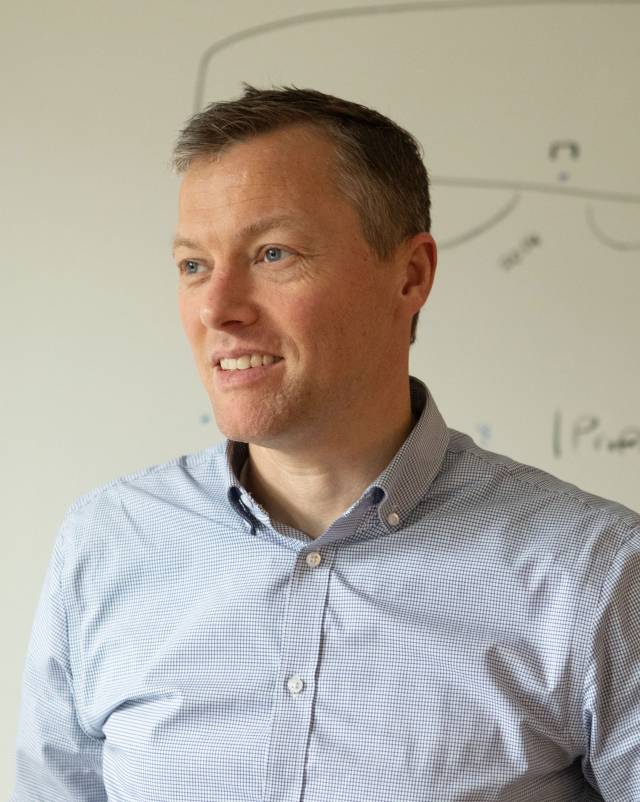
Matthew Desmond
Matthew Desmond(Link is external), the Maurice P. During Professor of Sociology(Link is external), is part of the project team “Housing Precarity, Eviction and Inequality in the Wake of COVID-19,” which was one of the initial three projects selected to receive funding in the spring.
Project description: Ensuring housing security is vital to mitigating the spread of the COVID-19 virus and sustaining health, economic security and family stability. This joint, interdisciplinary project will bring together academics and data scientists to track, analyze and respond to pandemic-driven spikes in eviction and displacement risks. Doing so requires development of: 1) an innovative system for tracking real-time eviction filings after the outbreak; and 2) a housing precarity risk model using machine learning, to better analyze and predict areas at disproportionate risk of displacement in the wake of the COVID-19 pandemic. This project will provide major new sources of data and inform research and public policy regarding U.S. housing and inequality.
Along with Desmond, the research team includes Karen Chapple, professor and chair of the Department of City and Regional Planning at UC Berkeley and the principal investigator, and Joshua Blumenstock, assistant professor at the UC Berkeley School of Information.
Reinforcement Learning to Safeguard Schools and Universities Against the COVID-19 Outbreak
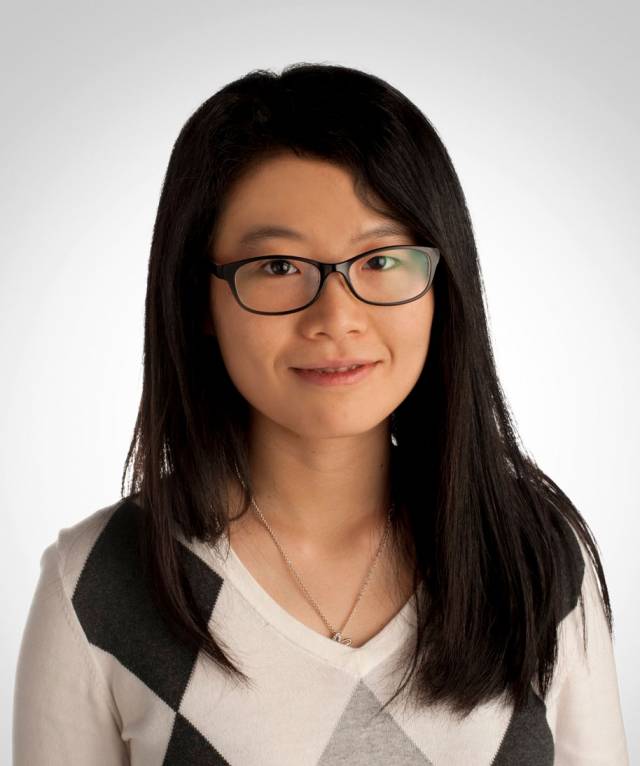
Mengdi Wang
Mengdi Wang(Link is external), associate professor of electrical engineering and the Center for Statistics and Machine Learning(Link is external), is part of the project team “Reinforcement Learning to Safeguard Schools and Universities Against the COVID-19 Outbreak.”
Project description: The COVID-19 outbreak has disrupted normal activities in nearly all aspects of higher education. To reopen our universities, we need new technology and innovative practices to safeguard students against the potential second wave of the virus outbreak. In this proposal, we seek to develop analytical methods for modeling and mitigating the COVID-19 situation based on students’ location and symptom data collected via mobile apps. We adopt an optimal control approach and seek intervention policies that strike a balance between containing the virus and keeping productive on-campus activities. This problem is highly challenging due to the prevalence of hidden states, unknown dynamics, and high dimensionality. By leveraging recent advances in system identification, reinforcement learning, and adaptive control, we will develop predictive methods to infer the hidden health states of individual students and develop algorithms to recommend optimal interventions (e.g., testing and quarantine) for decision makers. We will develop simplified models to assess the impact of such policies on the stability of the system captured in the growth rate of infections. The methods will be validated using simulation and available data. We expect to apply and further develop the methods to analyze real campus data from MIT in the fall semester of 2020. By using the computing capabilities of C3.ai Suite and Microsoft Azure Cloud, we expect to analyze large volumes of location data as they are collected and adapt the intervention policy. We will make our research outcomes, including software, non-confidential data sets and analysis sharable on the C3.ai platform.
Along with Wang, the research team includes two faculty members from the Massachusetts Institute of Technology: Munther Dahleh, the William A. Coolidge Professor, Electrical Engineering and Computer Science, and Anette Hosoi, associate dean of engineering and the Neil and Jane Pappalardo Professor of Mechanical Engineering.
